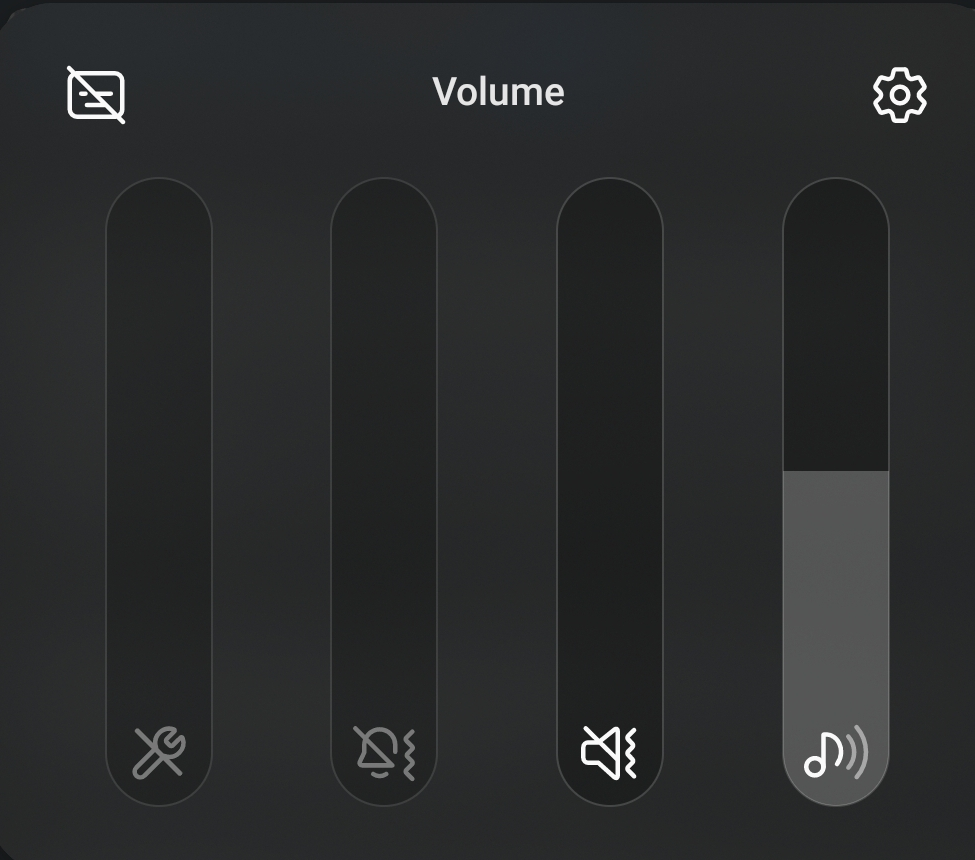I specifically purchase noise cancelling headphones / earbuds now since it makes it easy to listen at MUCH quieter levels. I have done some tests with the noise cancelling disabled and setting the volume and with it on.. It really makes a huge difference as I am not cranking it up to drowned out noise on transit or walking down the street.
Asklemmy
A loosely moderated place to ask open-ended questions
If your post meets the following criteria, it's welcome here!
- Open-ended question
- Not offensive: at this point, we do not have the bandwidth to moderate overtly political discussions. Assume best intent and be excellent to each other.
- Not regarding using or support for Lemmy: context, see the list of support communities and tools for finding communities below
- Not ad nauseam inducing: please make sure it is a question that would be new to most members
- An actual topic of discussion
Looking for support?
Looking for a community?
- Lemmyverse: community search
- sub.rehab: maps old subreddits to fediverse options, marks official as such
- [email protected]: a community for finding communities
~Icon~ ~by~ ~@Double_[email protected]~
Came here say this. Absolutely agree. Being able to reduce background noise is huge.
As a side point - having a car that's quiet has really allowed me to enjoy music at a much more reasonable level when driving as well.
I bought some Sony XM4s because I'd heard this theory before but I found noise cancelling barely makes a difference.
11, obviously!
It's 1 ~~better than 10~~ louder, innit?
Why don’t you just make ten louder and make ten be the top number and make that a little louder?
But this one goes up to 11
WHAT? SORRY I CANT HEAR ANYMORE
I try to target under 70db to protect my ears. Some earbuds and DAC's can show you a db estimate
Sound engineer here. Please protect your ears people, there’s no way to reverse hearing damage.
depends.
In the middle of angry-programming? The linkin park will be turned up to 80%. I want to make sure Chester's screams wakes the dead.
Business as usual? around 20%. Enough to drown out external noises.
I use the headphone safety feature of my phone to limit it to 80dB. Anything higher and you’re risking permanent hearing loss.
30-40%, but depending on what I'm listening to, I may temporarily crank it up. I think this question kinda depends on sound hardware, though.
11
10-15% on earphones. However, that doesn't really mean anything. Different sound card and headphone combination will produce different loudness at same levels.
As quietly as possible, you don't notice hearing damage until it's too late to do anything about it.
I'm just going to take this moment to remind everyone not to destroy their hearing. Back in highschool I used to blast my ears with headphones at maximum volume and go to loud venues without hearing protection. I've been permanently listening to EEEEEEEEEEEEE ever since. That was 25 years ago. It never goes away folks. Stay safe!
20% typically. I prefer to be able to hear my surroundings clearly still
I listen at a low volume. I'm usually doing something else as well, so loud music is too distracting and irritating. I'm old, and I can still hear very well except for spousal deafness.
I love that the font size on this post is twice as big as all the others.

on speakers? reasonable minus a notch or two
on headphones? cranked
I'm exactly the opposite. I've got fancy ass speakers for a reason, I'm gonna use them.
^(yes, I've checked with the neighbours)

With headphones and speakers it is always as quietly as possible since I already have ear damage, I don't want more.
Depends. My IEMs have higher impedance than your usual pair of headphones, and then it also depends on what I'm listening to from my self-ripped .flac library. Right now I am listening to Savage Amusement by Scorpions and I can listen to it enjoyably at 65 out of 120 on my Walkman. The Dark Side of the Moon by Pink Floyd is a tad bit quieter so on that album I have 75. Usually it's around this volume range, but sometimes if it's a raw grimey death metal album I have to go even higher.
tl;dr:
It mostly depends on how loud or quiet the album I'm listening to is.
WHAT?
Jokes aside, just over 50% system volume in general with apps and headphones maxed out. My hearing is so/so. I wish it were below 50 but it's just too quiet like that
20-40% when I'm at home and there are no noises that interrupt the sound. 50-75% when I'm outside and can't hear anything on lower levels. I try to keep this stuff as quiet as possible so as not to damage my hearing
I primarily listen to music in my car and it’s usually as loud as I can stand.
60%
I use Reduce Loud Sounds on the iPhone with my AirPods Pro to reduce the maximum volume to 80dB so that I don’t damage my hearing. That way, I can crank the volume buttons to maximum without having to think about it, knowing that it will be safe.
Full on speakers, around 50% to 80% on IEMs/headphones; depends on the max volume I can do without getting tinnitus.
For short car journeys or if I'm sharing, quietish background level
If I'm motorwaying it alone, fairly (but not stupidly) loud
WHAT?